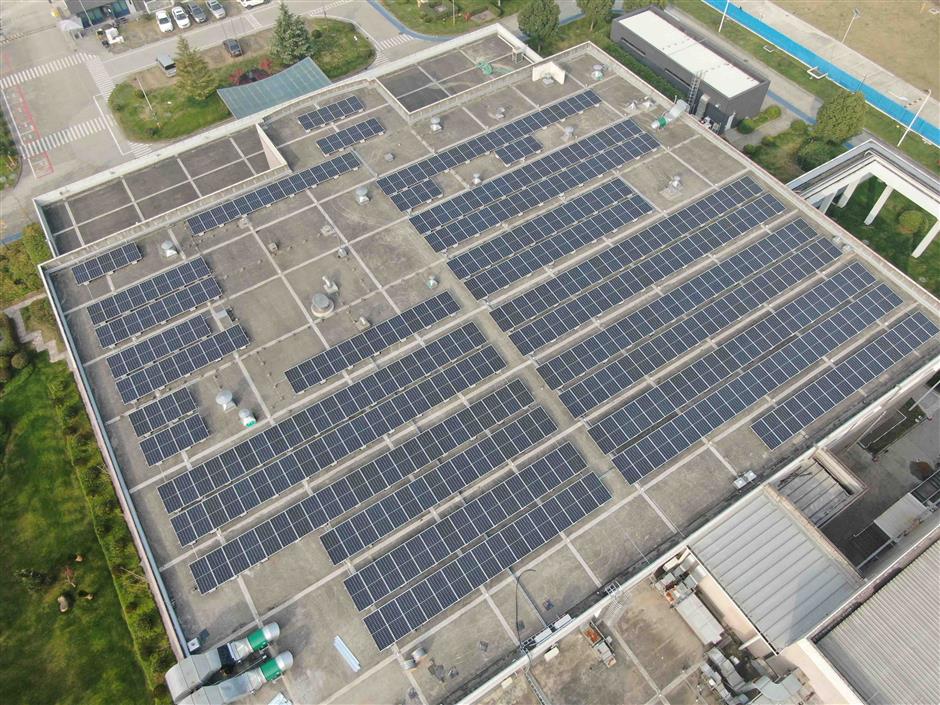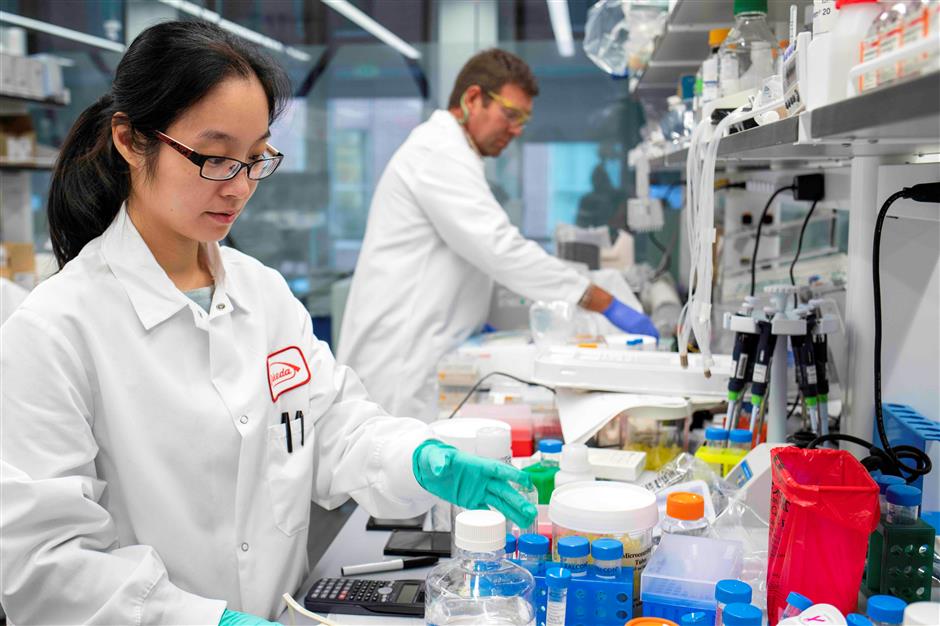Shanghai Today
Biopharma industry wins growth support pledges from city officials - September 01, 2022
生物制药行业赢得市政府官员的支持

Biopharma is one of the city's three pillar industries and officials have vowed further support to entice foreign investors and multinational pharmaceutical companies to help build it into a leading innovation hub.
Companies and testing facility developers in the sector are betting on Shanghai's industry cluster and favorable innovative ecosystem with pledges of further investment.
Shanghai Party Secretary Li Qiang reiterated during an early August visit to biopharma companies that the city will push the development of specialty industry parks to further unleash the potential of innovative operators.
It's essential to build a world class biopharma industry cluster to enhance industry development and better cater to people's healthcare demands, he noted.
Shanghai should map out a detailed blueprint for the industry, build up an innovative ecosystem and further boost specialty industry parks to link upstream and downstream players, he added.
By 2025, the city aims to have a biopharma manufacturing industry valued at 240 billion yuan (US$35 billion), and six specialty industry parks worth more than 10 billion yuan each.
Deputy director of Shanghai Science Commission Zhu Qigao said at the International Forum on Biotechnology and Pharmaceutical Industry earlier this month that innovation is the foundation of the city's biopharma industry and called for more input from all parties to build a world-class industry cluster.

Fosun Kite has recently launched an expansion project in Pudong's Zhangjiang area to upgrade and renovate the production line for its Yescarta cell immunology prescription treatment.
Fosun Kite started an expansion project at Zhangjiang Pharma Tianci International Biological Industrial Park in June to add production capacity for its Yescarta cell immunology prescription treatment, the first cell treatment available on the Chinese mainland.
This second phase of the production site would add to existing facilities, doubling the original size to upgrade and renovate the production line.
After completion, the site will offer 20,000 square meters to manufacture cell therapy treatment injections and develop new technologies to make them available to more patients.
CEO Huang Hai said the company is fully confident about locating its operations in Shanghai and hopes to contribute to its efforts to become a global city of excellence by pushing forward high quality cell treatment in the domestic market.
"Shanghai is the prime location for biopharma players, thanks to preferential policies, business environment and rich talent. We were able to ensure supply during the pandemic lockdown earlier this year thanks to relevant authorities," he added.
Immunotherapy, the customizing of cells from individual patients to help them fight cancer, requires higher supply chain and production environment hygiene standards, and Fosun Kite has brought leading technology and production process management to the city.
It's pouring in further research resources to make the treatment available for more disease types beyond lymphoma, such as solid tumor.
The new therapy, approved by the National Medical Production Administration to treat certain kinds of non-Hodgkin's lymphoma in China last year, has been included in nearly 50 city-level inclusive supplementary medical insurance plans and about 30 commercial medical insurance plans.

Boehringer Ingelheim's human pharma production site uses solar panels and will add more efficient air compressors and magnetic levitation chillers to lower its carbon footprint.
Boehringer Ingelheim Biopharmaceuticals China recently completed the first phase of its manufacturing upgrade project in the Zhangjiang area.
As part of its initiative to become a fully digitalized site by 2025, the contract manufacturing site is equipped with new digital technology upgrades and efficiency enhancement measures.
The facility allows a virtual tour of production lines without having to go through hygiene and disinfection measures.
Its contract manufacturing service provides assistance for startups to use eligible third parties to outsource their manufacturing without additional investment to build their own factory.
The company said it's dedicated to contributing to Shanghai's biopharma industry cluster by supporting clinical as well as commercial demand for biopharma players.
It will also continue to invest in carbon emission cutting facilities and technologies in coming years after its Shanghai pharma production site's recent reception of carbon neutrality validation from both China Emissions Exchange (Guangzhou) and TÜV Rheinland.
After reaching carbon peak in 2014, it took eight years to cut emissions and achieve carbon neutrality through various means. These included shifting towards renewable energy, cutting pharmaceutical waste and using more recyclable packaging for logistics distribution.
It will add follow-up facilities in future years such as more efficient air compressors and new magnetic levitation chillers to further lower its carbon footprint.
Takeda China chose Pudong New Area last month as the location for its Asian drug development center, signaling a further upgrade of its China R&D strategy.
The Japan-based company hopes to better integrate with the biopharma industry cluster in Pudong's Zhangjiang area and to further elevate the industry's development in the city through faster and better innovation.
Head of the Takeda Development Center Asia, Wang Lin, expects one of its core functions will be to explore drug innovation through linking with partners from different areas.

Takeda China chose Pudong New Area last month as the location for its Asian drug development center, signaling a further upgrade of its China R&D strategy.
Takeda's latest new drug introduction to China, Brigatinib, is an innovative therapy for a smaller but dangerous subtype of advanced non-small cell lung cancer.
Shanghai Chest Hospital's respiratory medicine department is the first hospital in the country to prescribe the new treatment after it gained National Medical Products Administration's approval in March this year.
President of Takeda China, Sean Shan, said it will continue to implement its innovation strategy with 15 new product launches scheduled in the next few years to address unmet medical needs.
Source: Shanghai Daily

